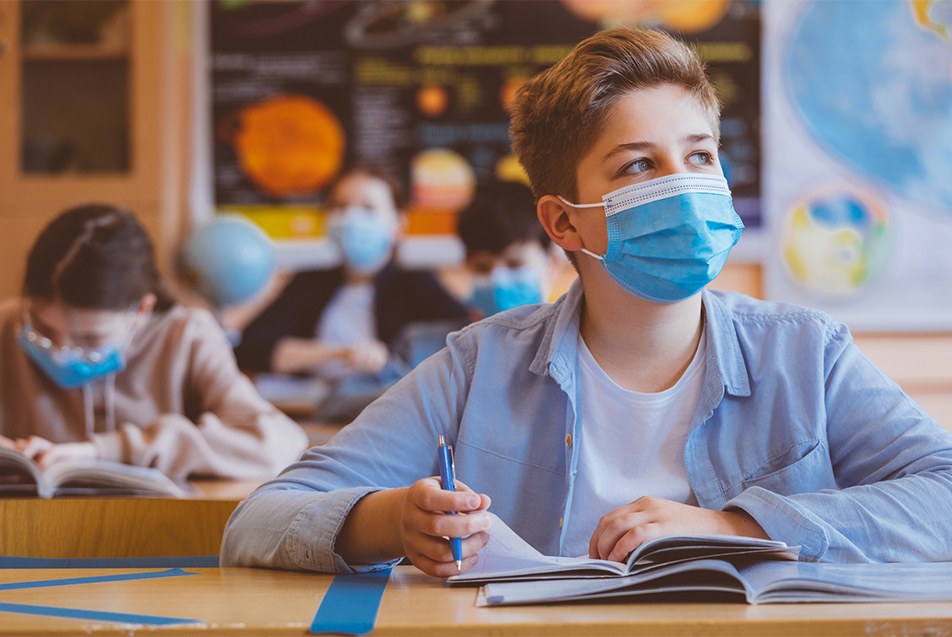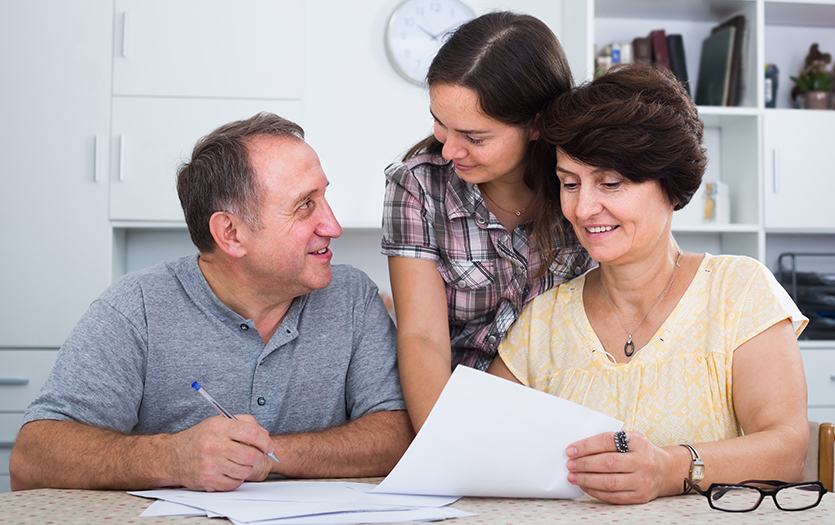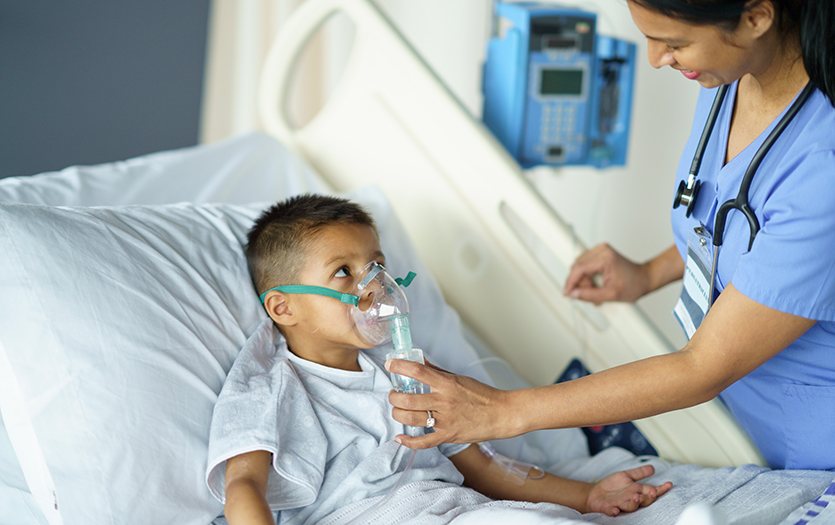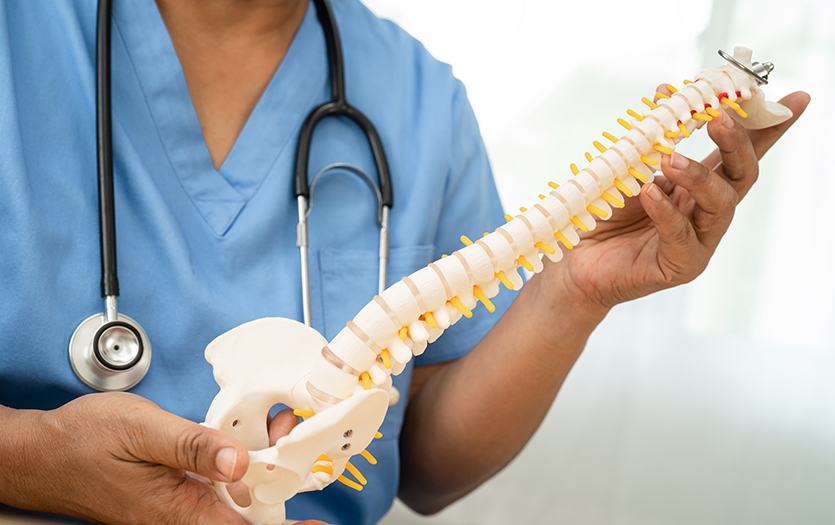
August is here, which means many are preparing to return to their school routines, both virtually and physically, with in-person classroom instruction. And, while this transition may be effortless for some, it comes with a host of anxieties and questions for others. To help address these uncertainties, we tapped Duane Hougendobler, MD, PPG – Pediatrics and Glenis Sundberg, LMFT, licensed clinical therapist specializing in family therapy, for expert advice that parents and children can both appreciate as they navigate this ever-changing landscape and head back to school.
How can parents help their kids get back onto a healthy schedule before school starts?
Dr. Hougendobler: I’ve been talking to school-age patients a lot about sleep and nutrition lately. A lot of parents are realizing they need to get their kids back on track as soon as possible, but the reality is, if a child has been staying up until midnight and sleeping in until 10 a.m. for weeks, that’s not going to get fixed in a day. You have to creep back that bedtime an hour a night until they are back where they should be. Ideally, you want to have them back to their healthy sleep schedule 4-5 days before school starts.
A healthy diet and exercise are so important for children. The main thing to keep in mind heading back into the school year, is to avoid sugars and cut back on snacking. For weeks now, they have had constant access to food, so they’ve likely been snacking a lot. For both nutrition and sleep, help them develop a plan and stick to it.
What are the current strategies recommended by the CDC for a safe return to school?
Dr. Hougendobler: Currently, as of July 27, 2021, the Centers for Disease Control and Prevention (CDC) recommends that all children should be in school and wearing a mask. Along with that, the CDC, American Academy of Pediatrics, World Health Organization and National Institutes of Health all agree and highly recommend that everyone 12 years of age and older get vaccinated.
Are there any pertinent questions parents should ask their school system before the first day?
Dr. Hougendobler: While the CDC has laid out their recommendations, I think there’s still a lot of uncertainty right now, leaving parents and caregivers unclear of what each school or system’s stance is on several key topics. I think the biggest questions I recommend asking include:
- What’s your school’s stance on masking? Is it mandatory, optional, etc.?
- What are the social distancing protocols this year? Are they different from last year?
- If a child has COVID-19 in the classroom, will the school still conduct contact tracing this year?
- Are there virtual options available for children who get quarantined (because it's going to happen)?
Are you seeing a lot of anxiety in young people during this time?
Glenis: I’m seeing anxiety mostly in children younger than 12, mostly because they are aware of the news cycle and their parents’ anxiety. They are afraid that Grandma, Grandpa or their parents might get sick. With children older than 12, we don’t see anxiety, but we do see a lot of depression. This particular group uses electronics as a coping mechanism and often look at very dark content. Also, limitations to socializing are definitely impacting both groups.
What advice would you give to a child or a parent who is nervous about exposure to the virus once school resumes?
Dr. Hougendobler: We have three tools here: Hand washing, safe and social distancing and masks. Those are the things parents need to encourage children to do. Don’t put anything in your mouth or touch your face until you’ve washed your hands. If you can’t be 6 feet away from people who don’t live in your home, put a mask on and keep it on. It’s to protect the wearer as well as those around you.
Glenis: Parents need to be honest with kids, but at the same time, empower them. Masks are important, but if they aren’t “cool,” let’s brainstorm how we could make them cool. Can you customize it in some way? Add a touch of your personality? Anxiety really comes from a lack of control for both the parents and the kids. But if we empower them and ourselves, we’re all more willing and likely to comply. When it comes to washing hands, for example, ask them about their favorite soap scent. What kind of sanitizer do you like? Make it fun and interesting, and use creative thinking.
Many parents wonder when they need to keep their kids home from school, whether that’s the decision to opt for virtual learning or have them take a sick day once in-person school resumes. What recommendations would you offer?
Dr. Hougendobler: When it comes to choosing virtual learning, I think that if you have a kiddo that absolutely will not wear a mask, they need to be home. If the face-covering makes them anxious and they do well at home, there’s no harm in that. If they have significant underlying medical problems, such as severe respiratory issues or a heart condition, I encourage parents to keep them home, at least for the first semester, as schools perfect their safety procedures. It’s really a case-by-case scenario, and parents should discuss it with their physician.
As far as keeping a child home due to illness, the Indiana State Department of Health put out some helpful guidelines for schools and families, and that’s what we’re recommending they follow. Depending on symptoms, the school will determine if and for how long the student needs to stay home. If a physician can find another cause for the symptoms, that will also impact when and if they can go back to school. It behooves us to be overly cautious. If your child is coughing, has a fever and/or just doesn’t look well, they should stay home until it resolves.
While some children are comfortable talking about their feelings, others are not. What are some signs that your child might be feeling anxious?
Glenis: They might be irritable; snap very quickly; have difficulty sleeping; loss of appetite or overeating; lack of concentration; not much energy; develop physical issues or pain like a tummy ache; sadness or crying.
If a parent notices any of these signs, they need to start with validation. Talk to the child about how they are feeling and let them express their emotions. Discuss what’s making them feel out of control and review what they do have control over. Ask them what they want to do.
If you could offer parents one piece of advice heading into the back-to-school season, what would you say?
Glenis: In every difficulty, there is opportunity. We’re very strong and very creative. Give your student the tools to be creative and make things better.
Dr. Hougendobler: Just have a plan and work the plan. A lot of anxiety comes from the unknown, and if we can outline hand washing, mask-wearing and social distancing, that really helps. Keep it very simple. Even little kids can understand that if you’re going to be around a lot of people, you have to put your mask on or that you have to wash your hands before you eat, drink or touch your face. Get them involved and let them have their own hand sanitizer on their book bag or purse. Have a plan, and if you work that plan, you’re going to be fine.



